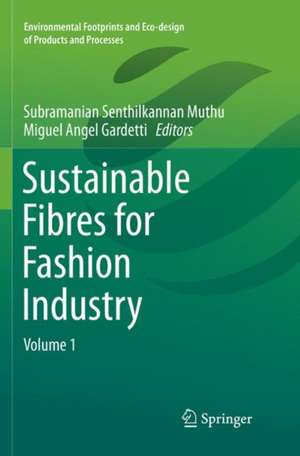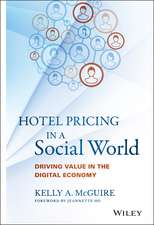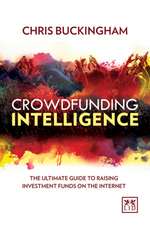Sustainable Fibres for Fashion Industry: Volume 1: Environmental Footprints and Eco-design of Products and Processes
Editat de Subramanian Senthilkannan Muthu, Miguel Angel Gardettien Limba Engleză Paperback – 25 apr 2018
| Toate formatele și edițiile | Preț | Express |
|---|---|---|
| Paperback (2) | 520.61 lei 6-8 săpt. | |
| Springer Nature Singapore – 27 mai 2018 | 520.61 lei 6-8 săpt. | |
| Springer Nature Singapore – 25 apr 2018 | 721.01 lei 6-8 săpt. | |
| Hardback (2) | 639.73 lei 6-8 săpt. | |
| Springer Nature Singapore – 3 mai 2016 | 639.73 lei 6-8 săpt. | |
| Springer Nature Singapore – 5 apr 2016 | 640.55 lei 6-8 săpt. |
Din seria Environmental Footprints and Eco-design of Products and Processes
- 18%
 Preț: 780.06 lei
Preț: 780.06 lei - 18%
 Preț: 1011.77 lei
Preț: 1011.77 lei - 18%
 Preț: 1118.62 lei
Preț: 1118.62 lei - 20%
 Preț: 568.65 lei
Preț: 568.65 lei - 18%
 Preț: 956.09 lei
Preț: 956.09 lei -
 Preț: 359.54 lei
Preț: 359.54 lei - 18%
 Preț: 893.71 lei
Preț: 893.71 lei - 18%
 Preț: 952.09 lei
Preț: 952.09 lei - 17%
 Preț: 457.13 lei
Preț: 457.13 lei - 18%
 Preț: 891.33 lei
Preț: 891.33 lei - 15%
 Preț: 635.47 lei
Preț: 635.47 lei - 18%
 Preț: 957.32 lei
Preț: 957.32 lei - 18%
 Preț: 1233.83 lei
Preț: 1233.83 lei - 15%
 Preț: 644.63 lei
Preț: 644.63 lei - 15%
 Preț: 581.47 lei
Preț: 581.47 lei - 15%
 Preț: 699.28 lei
Preț: 699.28 lei - 15%
 Preț: 518.30 lei
Preț: 518.30 lei -
 Preț: 388.13 lei
Preț: 388.13 lei -
 Preț: 383.12 lei
Preț: 383.12 lei -
 Preț: 383.50 lei
Preț: 383.50 lei - 15%
 Preț: 642.03 lei
Preț: 642.03 lei - 15%
 Preț: 639.73 lei
Preț: 639.73 lei - 19%
 Preț: 540.94 lei
Preț: 540.94 lei - 15%
 Preț: 642.18 lei
Preț: 642.18 lei - 18%
 Preț: 1117.99 lei
Preț: 1117.99 lei - 15%
 Preț: 639.08 lei
Preț: 639.08 lei - 15%
 Preț: 637.59 lei
Preț: 637.59 lei - 15%
 Preț: 638.76 lei
Preț: 638.76 lei - 15%
 Preț: 696.82 lei
Preț: 696.82 lei - 18%
 Preț: 726.69 lei
Preț: 726.69 lei - 15%
 Preț: 580.49 lei
Preț: 580.49 lei
Preț: 721.01 lei
Preț vechi: 879.28 lei
-18% Nou
Puncte Express: 1082
Preț estimativ în valută:
137.96€ • 144.06$ • 113.93£
137.96€ • 144.06$ • 113.93£
Carte tipărită la comandă
Livrare economică 15-29 aprilie
Preluare comenzi: 021 569.72.76
Specificații
ISBN-13: 9789811091810
ISBN-10: 9811091811
Ilustrații: IX, 162 p. 91 illus.
Dimensiuni: 155 x 235 mm
Greutate: 0.25 kg
Ediția:Softcover reprint of the original 1st ed. 2016
Editura: Springer Nature Singapore
Colecția Springer
Seria Environmental Footprints and Eco-design of Products and Processes
Locul publicării:Singapore, Singapore
ISBN-10: 9811091811
Ilustrații: IX, 162 p. 91 illus.
Dimensiuni: 155 x 235 mm
Greutate: 0.25 kg
Ediția:Softcover reprint of the original 1st ed. 2016
Editura: Springer Nature Singapore
Colecția Springer
Seria Environmental Footprints and Eco-design of Products and Processes
Locul publicării:Singapore, Singapore
Cuprins
Luxury Hair Fibers for Fashion Industry.- Mainstreaming of sustainable cotton in the German clothing industry.- Possum fiber – A Wonderful Creation of Nature.- Natural fibres for sustainable development in fashion industry.- Sustainable Bio Polymer Fibers – Production, Properties and Applications.- Case Study of Renewable Bacteria Cellulose Fiber and Biopolymer Composites in Sustainable Design Practices.
Textul de pe ultima copertă
This book covers all sustainable fibres applicable in the fashion sector and discusses their importance in the context of sustainability. It is the first of its kind to address all the minute details pertaining to these fibres and to connect these fibres with the world of sustainable fashion. It stresses their importance in developing sustainable apparel, since fibres play a major role as the starting point in the life cycle of clothing.
Caracteristici
It is the first of its kind to address all the minute details pertaining to these fibres and to connect these fibres with the world of sustainable fashion Addresses the importance of sustainable fibres in the fashion sector Highlights the life cycle of sustainable fibres and the link to fashion and textiles Includes supplementary material: sn.pub/extras
Notă biografică
Dr. Subramanian Senthilkannan is currently working for SGS as a global sustainability consultant, based at Hong Kong. He gained his diploma, bachelors and masters in Textile Technology from premier institutes of India. He was awarded doctorate from The Institute of Textiles and Clothing of The Hong Kong Polytechnic University for his dissertation entitled,” Eco-functional Assessment of Grocery Shopping Bags” He also has more than seven years of industrial experience in textile manufacturing, testing and sustainability evaluation of textiles and clothing materials. He was an outstanding student throughout his studies and bagged numerous awards and medals including many gold medals in his study period. He has more than 75 academic publications in various textiles and environmental journals to his credit. Additionally he has 2 patents, 2 books of chapter and 13 books and numerous conference publications. He is acting as an editor, editorial board member and reviewer for many international peer-reviewed journals of textiles and environmental science disciplines. He is the editor-in-chief of Textiles and Clothing Sustainability journal of Springer. Additionally, he is one of the directors of Textile and Bioengineering Informatics Society, (TBIS) which is a charitable organization created to foster, develop and promote all aspects of science and technology in bioengineering of materials, fibers and textiles.
Miguel Angel Gardetti, Ph.D., has been the head of the Center for Study of Sustainable Luxury since its foundation in 2009. In this field, he has lectured at the IE Business School (Madrid, Spain), one of the top business schools in Europe. Moreover, he was a speaker at Identidad Uruguay, an event organised by the Universidad de Empresa (Montevideo), with a lecture on fashion, luxury, and sustainability. He was the creator of the Best Performance in Sustainable Luxury in Latin America Award at present evolving towards the IE Award for Sustainability in the Premium & Luxury Sectors at a global level. He has also developed several publications in the area of sustainable luxury.
Miguel is a member of the United Nations Global Compact Promoting Group in Argentina and a member of its governance body—the Board of the Argentine Chapter of The Global Compact—for two consecutive terms. He was co-founder of the Global Compact Chair in Argentina, and he was also part of the task force that developed the ‘Management Responsible Education Principles’ of the United Nations Global Compact.
He has also coordinated tasks for the Inter-American Development Bank, the International Finance Corporation (private sector arm of the World Bank), the Netherlands Development Organisation, the United Nations (New York), and the World Resources Institute (USA).











